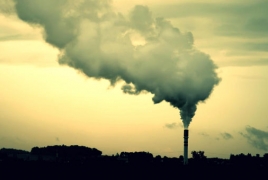
Sales of synthetic chemicals will double over the next 12 years with alarming implications for health and the environment, according to a global study that highlights government failures to rein in the industry behind plastics, pesticides and cosmetics.
The second Global Chemicals Outlook, which was released in Nairobi on Monday, march 11, said the world will not meet international commitments to reduce chemical hazards and halt pollution by 2020. In fact, the study by the United Nations Environment Programme found that the industry has never been more dominant nor has humanity’s dependence on chemicals ever been as great.
“When you consider existing pollution, plus the projected growth of the industry, the trends are a cause for significant concern,” said Achim Halpaap, who led the 400 scientists involved in the study.
He said the fastest growth was in construction materials, electronics, textiles and lead batteries. More and more additives are also being used to make plastics smoother or more durable.
Depending on the chemical and degree of exposure, the risks can include cancer, chronic kidney disease and congenital anomalies. The World Health Organization estimated that the burden of disease was 1.6 million lives in 2016. Halpaap said this was likely to be an underestimate. In addition to the human health dangers, he said chemicals also affect pollinators and coral reefs.
Global chemical production has almost doubled since 2000 and is now – if the pharmaceutical business is taken into account – the world’s second largest industry, the report noted.
This is expected to continue for at least the next decade owing to massive increases in the expanding economies of Asia, Africa and the Middle East. By 2030, the industry is projected to almost double again from 2017 levels to hit $6.6tn (£5tn) in sales; China is forecast to account for 49.9% of the world market.

